By Br. Steve Herro, O. Praem.
Jesuit Fr. Matt Malone recently wrote that 65 percent of U.S. voters live in congressional districts in which either President Trump or Secretary Clinton won the district by at least 20 percent of the vote.
San Diego Bishop Robert McElroy cited a survey that said 40 percent of Americans today would be upset if their child married someone from the other political party—compared to only five percent feeling that way in 1960.
If you observe legislative voting patterns in your local community, state, or U.S. Congress, are lawmakers able to timely advance significant legislation to promote the common good?
For example, Wisconsin has not passed a biennial budget on time in the last four or five cycles; at the federal level, who does not know the meaning of the term “continuing budget resolution”—a temporary fix to prevent the federal government from shutting down because the president and Congress have not been able to agree to a budget in seven months of negotiating?
Are you as exhausted as I am about the political polarization in the U.S. today? Does Christianity provide hope—an answer—to this vexing problem?
According to David Michael (“Alan Jacobs: a Christian intellectual for the internet age,” America, April 28, 2018), Christian public intellectuals grazed the scene 50 years ago by interpreting, bridging cultural gaps, mediating, and reconciling. Can they return?
Perhaps Georgetown University’s Initiative on Catholic Social Thought’s “Though Many, One: Overcoming Polarization Through Catholic Social Thought” (June 4-6, 2018) can help advance Christian thought on breaking polarization in our legislatures. As Initiative director John Carr explained:
This is an attempt in a more focused and strategic way to look at how this unnecessary and unhelpful polarization reduces our ability (as Catholics) to make a difference in a really divided country.
We’re not going to debate economic issues or this controversy or that controversy. We’re going to explore the causes, the costs and how to overcome polarization which undermines (the church’s) public witness.
The beauty of Catholic social teaching is it connects things that are not connected in politics-as-usual and we want to help make those connections.
We’re high on building relationships. It’s hard to prejudge people that you’ve met.
Besides academic conferences, polarization can be met head-on by placing museums, art centers, libraries, and other educational venues in the midst of a point of disharmony. How many hearts have been touched, how many minds have been enlightened, when people have visited the National Civil Rights Museum in Memphis, Tennessee (the very site of the assassination of Dr. Martin Luther King in 1968), or the Birmingham Civil Rights Institute in Birmingham, Alabama, where Dr. King wrote, “Letter from a Birmingham Jail”? The Church can promote the establishment and participation of such organizations through financial contributions and incorporating visits by Catholic parish and student groups.
Do you know who wrote:
It is the responsibility of the State to safeguard and promote the common good of society. Based on the principles of subsidiarity and solidarity, and fully committed to political dialogue and consensus building, it plays a fundamental role, one which cannot be delegated, in working for the integral development of all. This role, at present, calls for profound social humility.
If you guessed Pope Francis, congratulations! Number 240 of The Joy of the Gospel is followed by #241:
In her dialogue with the State and with society, the Church does not have solutions for every particular issue. Together with the various sectors of society, she supports those programmes which best respond to the dignity of each person and the common good. In doing this, she proposes in a clear way the fundamental values of human life and convictions which can then find expression in political activity.
Pope Francis’ choice of the words “social humility” and “together with various sectors of society” jump out at me. Humble people don’t breed polarization; nor do people or organizations who cannot act multilaterally.
Several years ago, I volunteered with “Dan” on a regular basis. Besides sharing a desire to serve our community in our cathedral’s ESL program, we enjoyed talking about current events (as do a lot of people in Washington, D.C.!) and the Catholic Church. I learned that Dan had a past college internship working for one of the wealthiest political action committees (PAC) … and that this PAC funded many candidates that I probably would never vote for. Today, Dan is working for a national legislative leader of whom I share very few political preferences. Nevertheless, when my LinkedIn message announced his job to me, I congratulated him.
Are we willing to congratulate one on his or her good fortune … even if the accomplishment is totally contrary to our own political leanings? It might seem like a minor gesture toward dismantling political discord in the U.S., but I am glad that I e-mailed him, anyway.
DISCLAIMER: This blog represents Br. Herro’s own opinions and experiences. It does not represent an official position or opinion of St. Norbert Abbey or of any other Norbertine.







